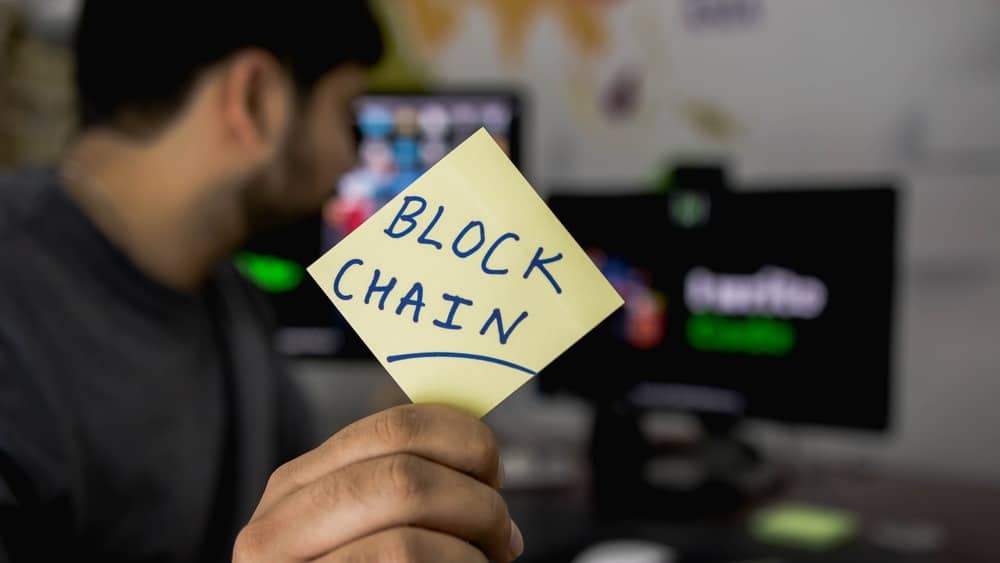
In today's world, economic activities are inching closer to a decentralized future. Upon closer look, blockchain technology and Web3 lead the charge, with significant evidence of how they're revolutionizing multiple industries. Both technologies have proven to be positive, sustainable alternatives to payment structures, value chains, and investment platforms.
With all these changes and advancements, imagining a blockchain-powered world spanning various industries, including real estate, isn't out of place. This article focuses on that possibility in the real estate industry. So, how do blockchain and Web3 fit into the real estate industry? Read on for more context.
What are Web3 and Blockchain?
Beyond the media buzz around Web3 and blockchain, you should understand what both technologies mean. Essentially, Web3 is the third, most recent iteration of the internet. It works on the premise that internet applications and operations can run on decentralized, open-source frameworks.
Following that logic, blockchain technology is a Web3 subset. It's a digital ledger system that stores and verifies each internet transaction using cryptography. Web3 and blockchain promise better transparency and security over traditional alternatives.
Web3 and Blockchain in Real Estate: Practical Application to Note
How is Web3 poised to change the real estate industry? This question is critical, given how rooted the real estate industry is in conventional property transactions. Real estate agents have only started to digitize asset management and related processes fully.
Nonetheless, Web3 and blockchain technology are on hand to place real estate on tech's bleeding edge. Below are some of their practical applications observable in the real estate market:

Asset Tokenization
For a long time, real estate assets have had physical dimensions as they move along the value chain. Web3 real estate frameworks seeks to redefine how we handle real estate transactions through tokenization. Asset tokenization involves the creation of digital tokens to represent physical real estate assets.
Investors can trade these tokens on a blockchain property ledger instead of the physical properties they represent. An immediate benefit of such asset management is that real estate investors can now diversify their portfolio extensively.
If real estate asset tokenization eventually becomes mainstream, property transactions will get more transparent and away from the arbitration of a powerful few.
DeFi (Decentralized Finance)
Web3 also rapidly influences how a typical real estate deal gets handled in the realty market. Traditionally, buyers and sellers involve mortgage companies or conventional financiers to complete a property deal. However, related finance structures have adverse effects and the bulk of the financial responsibility rests on the property buyer.
Decentralized Finance (DeFi) aims to address these drawbacks through blockchain-powered asset management and financing. With them, buyers can access decentralized real estate loans and finance plans for purchase. Several options are already available, with many offering more flexible collaterals than mortgage companies can currently manage.
Smart Contracts
Agents and real estate investors can utilize smart contracts to improve transactions and asset management. Smart contracts are agreements executed with an automatic, preset code. It obtains parameters from a property seller and buyer, validating the contract when both parties reach a consensus.
Smart contract processes eliminate bottlenecks around commercial real estate transactions, making them safe and more efficient than traditional methods. Additionally, it saves money and time that would've been lost through manual oversight.
However, note that the automated smart contracts system comes at a cost: the human factor, or the lack thereof. Without human intermediaries, you'd be running considerable risks on smart contracts. All the good faith, trust, and the 'human touch' become open-ended, and you'd have to pay extra attention to each step of the purchase process.

Asset Registry
At Web3's core, processes are shared across the participating entities - nodes - rather than a single central source. This ‘decentralized’ approach is an excellent fit for property and land registry in commercial real estate.
Generally, the commercial real estate market revolves around property ownership and proof. Investors and agents use asset registries to establish ownership, creating the uniqueness and value necessary to put the properties for sale.
Asset registries determine the real estate market's entire value. Experts often state that registries underline the ‘high risk, high reward’ climate. As such, conventional land registries are prone to attacks or arbitrary changes.
Web3 stabilizes things a bit. Using cryptography, smart contracts, and blockchain technology, asset registries can become immutable and impervious to arbitrary changes. With the technology, titles and ownership deeds can exist as Non-Fungible Tokens (NFTs), allowing investors to consolidate their portfolios.
Identification, Tracking, and Verification
One direct implication of digitizing real estate transactions is the need for entity identification. Agents, investors, and other real estate professionals need to keep digital receipts of transactions to identify each stakeholder in the deal correctly.
However, much of the identity and tracking data generated gets stored in a central location. As expected, a key downside to that is redundancy once the information's integrity fails from its primary source. Thankfully, real estate personnel can avoid the issue through decentralized blockchain identification systems.
Data banks get shared across a transaction network and everyone involved in the real estate process gets an updated version of generated identity data. Thus, complete data failure is less likely, and sensitive bits are safe from possible manipulations.
Another clear advantage to a decentralized tracking system is that real estate businesses move away from a siloed tracking database whenever they initiate or close a transaction. Instead of relying on manual, time-consuming tracking processes, realtors and RE agencies can leverage smart contract-powered ledgers for accurate results.
In a typical property search process, traditional tracking systems require physical proof of asset ownership. But blockchain for real estate companies significantly improves on that by storing ownership information behind an immutable ledger. The property owner can access the register with a private key for easy identification.
Real-Time Real Estate Accounting
Stakeholders can tell you how real estate transactions have protracted accounting processes. The redundancy might be necessary, given the time required to process permissions and approvals. However, these procedures inadvertently take days or weeks.
Real estate professionals now use blockchain and smart contracts to manage their ledgers and accounts. It's a positive move, as real estate blockchain project transactions occur in real-time. Also, payments get processed much faster, with secure management backed by smart contracts.
Benefits of Web3 and Blockchain in Real Estate
With blockchain and real estate smart contracts applications currently in use, it’s necessary to consider how they move the real estate industry forward. Many experts might agree that Web3 is the “next big thing” for the global economy, but it’s not out of place to justify it in a particular industry.
Here are some notable blockchain and Web3 real estate benefits:
Fewer Bottlenecks
The journey between a buyer's interest and the seller's agreement on a property transaction is more complex than expected. Each preceding step needs an intermediary to proceed to the next, causing avoidable bottlenecks.
Blockchain technology and Web3 real estate address this wedge by eliminating the need for intermediaries.
With the aid of a real estate blockchain platform, buyers and sellers can authorize or verify any part of a transaction without waiting for a central prompt. Also, a significant portion of the entire transaction gets automated through smart contracts.
Cost-Effectiveness
The automation embedded in Web3 and blockchain processes reduces the expenses of real estate transactions. Costs prevalent in realty deals include registration fees, taxes, loan fees, and inspection charges.
These expenses differ depending on location. However, these fees, like intermediaries, can be eliminated or reduced by automating vital realty activities.

The Next Step for Real Estate Agents
With the array of realities and applications blockchain technology and Web3 offer, how do you stay ahead of the curve as a real estate agent? For starters, staying in sync with the latest trends and happenings in both areas is advised. You can also consider real estate sector reports, workshops, and seminars focused on decentralization.
Also, it's essential to have an exploratory approach to the Web3 applications. Get ready to test these technologies. If you run a real estate agency or outfit, create a budget to test new decentralized crypto for real estate systems. That way, you can scale and integrate their applications effectively.
Bottom Line
Web3 and blockchain technology are proving to be more than just a media fad. Besides the 'crypto' and blockchain buzzwords, decentralized systems and Web3 have revolutionized industries and made them efficient.
Most RE agents and companies are curating Web3 and blockchain real estate investing plans for their notable advantages, including better efficiency, cost-effectiveness, and increased range.
For now, these technologies complement conventional practices, removing redundancies in daily real estate operations. However, a fully decentralized real estate future isn't far-fetched as more RE companies and agents embrace Web3 and blockchain technologies.With Web3 and blockchain revolutionizing the real estate industry, consider outsourcing complex realty tasks like SEO to trusted and proven experts. Ardor SEO provides top-tier real estate SEO services that can expand your business's reach and attract high-paying clients. Contact us today to find out more!

